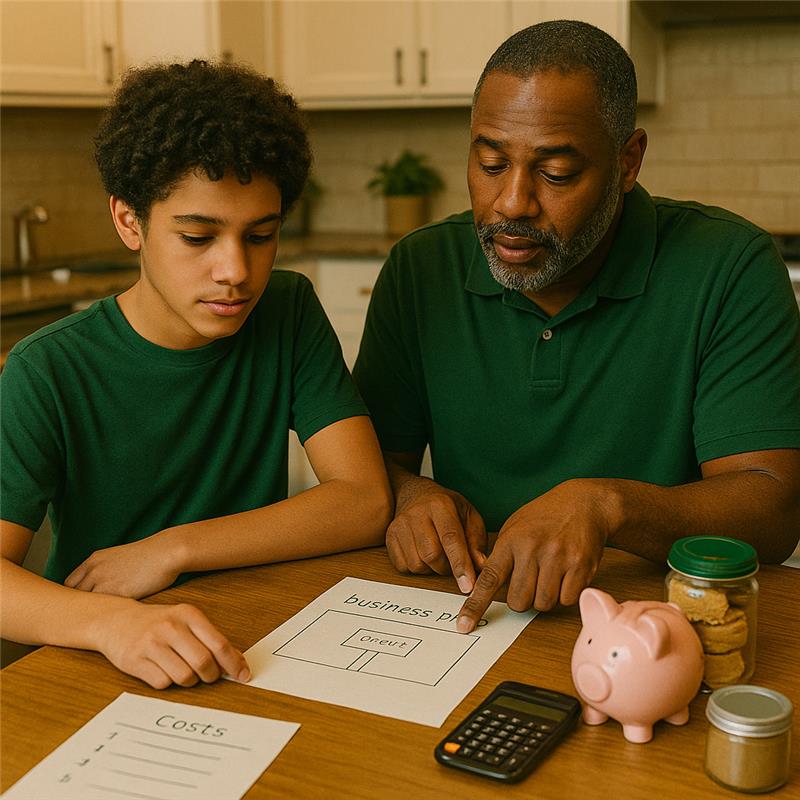
Why Parents Matter in Early Ventures
Parents are often the first to say “yes” to a child’s idea and provide the safe structure to test it in the real world. From offering small seed funds to asking smart, reflective questions after each sale, families connect effort with outcomes and model problem-solving. Early support turns tiny experiments—like lemonade stands or digital stickers—into lessons in pricing, service, and resilience that school alone may not cover.
A Kitchen-Table Story: Jay’s Sticker Startup
Jay, a ninth grader, pitched a set of motivational stickers at dinner and asked for $40 to cover test prints and envelopes. His parents matched the budget on one condition: track every expense and sale for four weeks in a simple ledger. The first batch moved slowly, so the family reviewed feedback together; Jay added a “study session” theme that clicked with classmates and doubled repeat orders. By month’s end, Jay repaid the seed funds, kept a small reserve, and reinvested profits into a basic online storefront—gaining confidence and real financial habits along the way.
Practical Ways Families Can Invest
Offer a tiny seed fund with clear expectations and weekly check-ins; mentor without micromanaging by asking “What did you learn?” and “What will you try next?”; open your network to a trusted neighbor or local shop for pilot feedback; and support simple systems like a one-page plan, a basic ledger or spreadsheet, and a three-question customer form.
Turning Mistakes into Momentum
Early ventures include mishaps—late deliveries, mispriced bundles, or designs that don’t land—but families can model iteration without shame. Encourage revising the offer, refining the message, or trying a different audience so setbacks become data points, not dead ends. When experiments are normalized, kids learn to see challenges as design prompts that lead to better versions.
Building Confidence, Literacy, and Purpose
Parent-backed projects are a training ground for communication, budgeting, and customer empathy that compound over time. Simple routines—weekly reviews, margin checks, and gratitude notes to supporters—teach discipline and credibility. As kids experience the link between effort and value, they develop agency and a clearer sense of how their talents can serve others.
A Simple Family Blueprint to Start This Week
- Pick one nearby need—tutoring hour, pet-sitting, yard care, or digital flyers—set a micro-budget and a one-week success metric, then cap the pilot at five customers to learn fast.
- Keep paperwork light: a one-page plan, a cost-and-sales log, and three feedback questions for every customer.
Key Takeaways for Families
Seed confidence with small funds and gentle accountability, coach reflection instead of perfection so iteration becomes a habit, and model simple finance practices that separate savings, reserves, and reinvestment.
Ready to nurture a young builder? Build with confidence—ask a quick question and get a fast reply.
Email: info@thousand-aires.com | Phone: 844-370-7227 (TACT)
